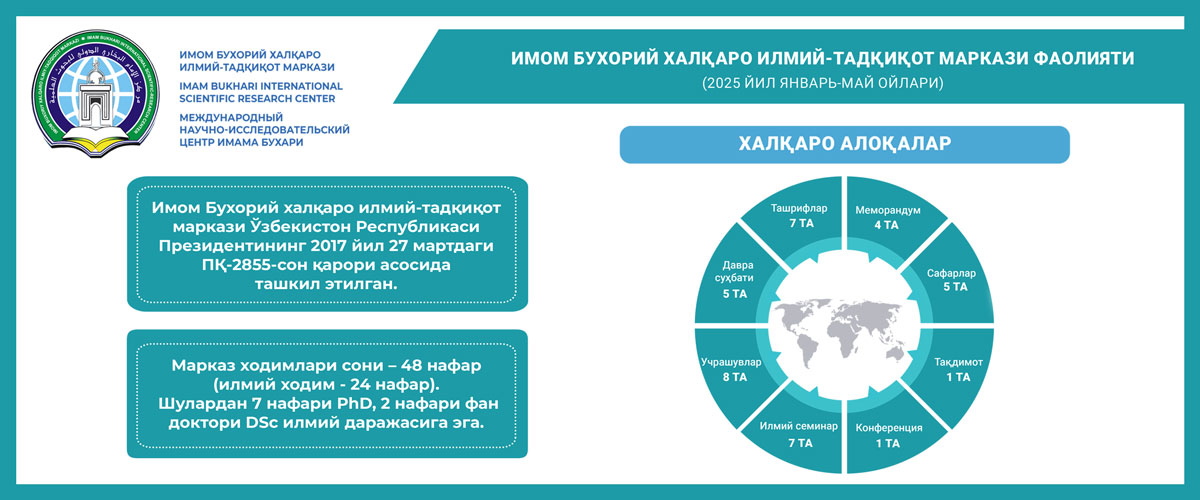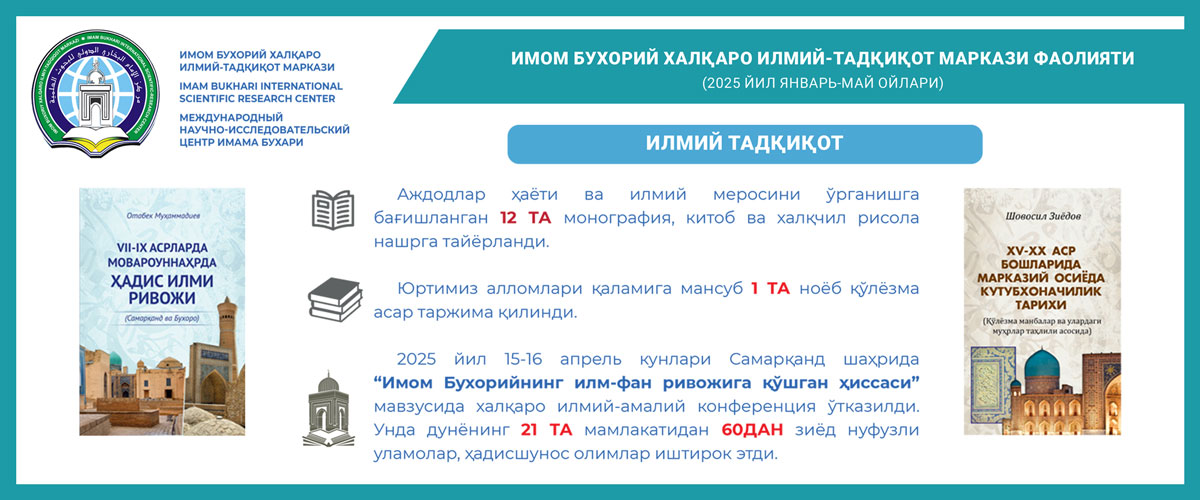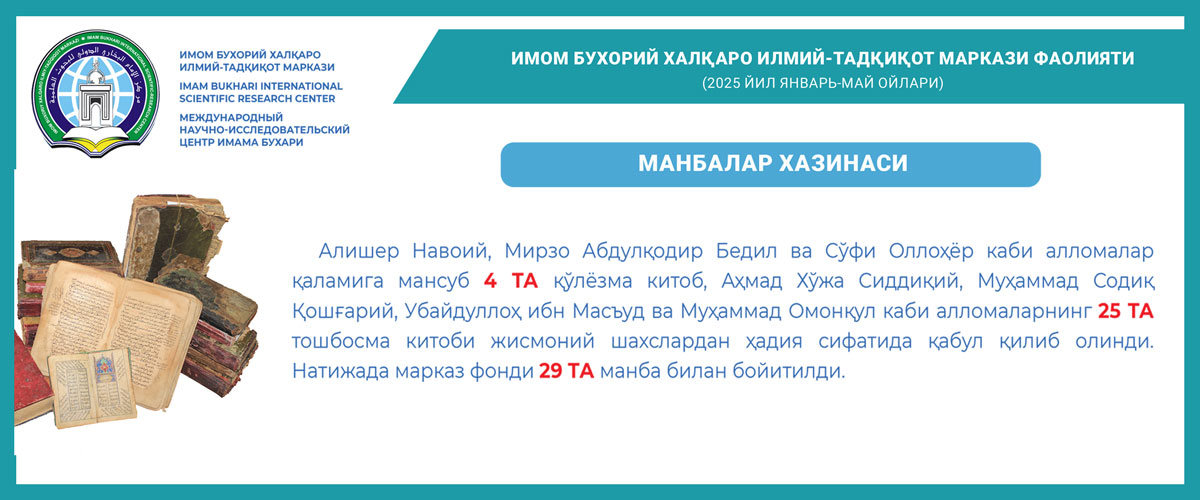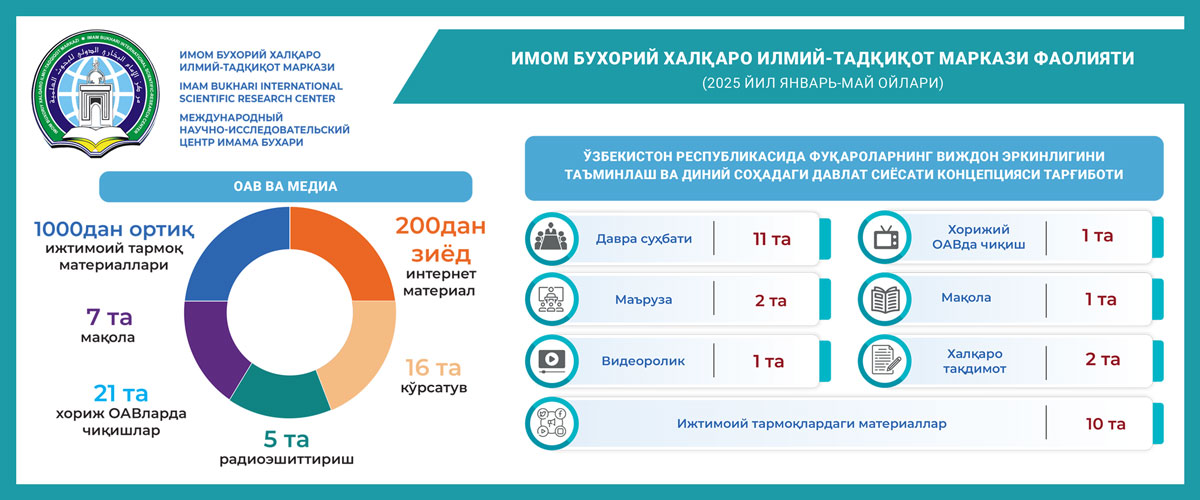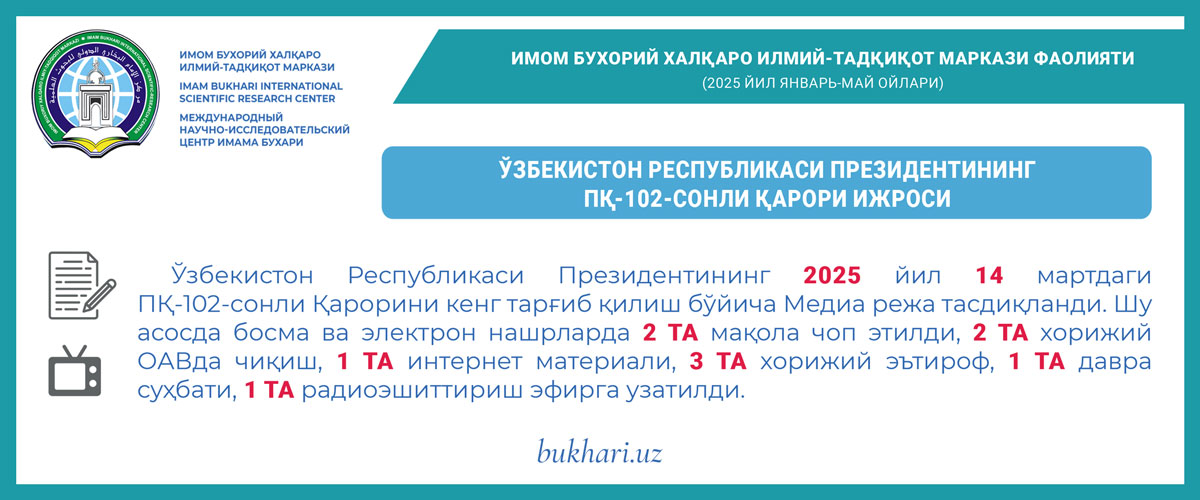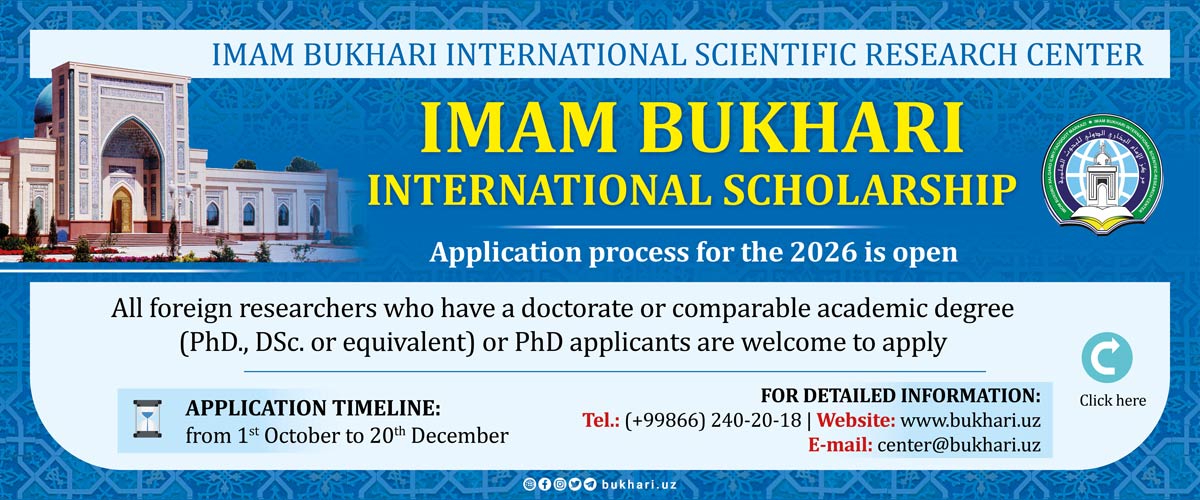Since very ancient times, our country has been famous for its scholars, scientists, thinkers and geniuses — experts in different branches of secular and religious sciences and education. Thanks to the independence our country has gained, we are provided with possibilities to study and investigate their scientific and educational heritage. One of such great figures in the field of law of the Hanafian order and acknowledged expert in the science of Hadiths is Muhammad ibn Is’haq Abu Bakr al-Bukhari al-Kalabadi. Kalabad is one of the mahallas not far from ancient and holy Bukhara. Born in this mahalla Muhammad ibn Is’haq Abu Bakr was honoured with the title of “al-Kalabadi”. It is a great pity that we do not have enough information about his time of birth but the sources inform us that he died in 380/990. Although we do not have necessary information about his youth and his life at our disposal, we have some information about his teachers who taught him. In accord with this small information, we can state that he received lessons on law from a well-known Sheikh Muhammad ibn Fazl. He was taught the science of kalam by Abu Hafs al-Kabir al-Bukhari. Alongside with it, some sources inform us that al-Kalabadi worked as a judge (qazi) in Maveraunnahr and, at the same time, received lessons on Sufism and other religious orders from a well-known Sheikh Qasim Faris. Accounting the date of his death, wc can assume that he lived in the 10th centuiy, a period of progression of science and education in our country, and made a worthy contribution to this process. Fie was famous for his excellent memory as he had learnt the Hadiths produced by our Prophet Muhammad (saas). According to some scientists, he learnt more than three hundred thousand Hadiths by heart. Not in vain a well-known Arabic scientist and historian Khayriddin az-Zirikli wrote about Abu Bakr al-Kalabadi honouring him as “min huffaz al-Hadith” (An excellent reader of Hadiths). Al-Kalabadi was also known at his time as an investigator of the theory and history of Sufism.
The authors who studied the life and scientific heritage of al-Kalabadi mention that he left five or six original works dealing with Sufism and the history of religious teachings. However, only two of them have reached us and others are considered to have been lost. One of the works written by al-Kalabadi is “Bahru-l-favaid” (The Sea of Useful Knowledge). According to the information provided by an Arabian scientist Hajji Khalifa and other authors, this work was also known among people under the title of “Ma’aniy al-akhbar” (Meanings of Information (Hadiths)). In this book, the author provides important commentaries of 592 Hadiths uttered by Prophet Muhammad (saas) on morality and education. In the scientific activity of al-Kalabadi, commenting on Hadiths occupies a special place. Particularly, he wrote commentaries for the book “Al-Jami as-sahih” written by Imam al-Bukhari on the Hadiths uttered by Prophet Muhammad (saas).
The creative work by al-Kalabadi that made him famous throughout the world is his book titled as “At-Ta’arruf li mazhab ahl at-tasawuf” (Getting Introduced with the Branches of Sufism). As is seen from its title, this book is devoted to the problems of Sufism and in the bibliographic lists, it is often mentioned as “At-Ta’arruf” (Getting Introduced). This book is one of the earliest and most important books devoted to the problems of Sufism ever written in the Arabic language. This book has always been attracting the attention of the scientists and experts in the Islamic teachings as it describes the first three centuries of the history of development of Sufism and other Islamic sciences. It was highly appreciated by the experts in the Islamic sciences who lived after Abu Bakr al-Kalabadi. For instance, a well-known philosopher and expert in the science of Hadiths Sheikh Shihabuddin Yahya al-Maqtul as-Suhravardi (1155-1191), who lived two hundred years later than al-Kalabadi, stressed the incomparable importance of the book written by al-Kalabadi in the following lines: “If there had not been the book “At-Ta’arruf” by al-Kalabadi, we would never know what Sufism is”. Later as-Suhravardi’s followers several times mentioned this recognition expressed by him. For instance, a famous thinker and poet Abdurrahman Jami in his book “Nafahat al-Uns” mentioned the same recognition. This book is important as the first and a rare source, which comments on the rules, laws and terms of Sufism as well as the activities of well-known representatives of this trend in the history of Islam. The authors of a number of works devoted to the problems of Sufism and written in the lOth-llth centuries used citations taken from this book. Moreover, even the modern authors often call on this book and use citations from it relying on the correctness and originality of the ideas expressed in it.
Irgash Daminov
 Imom Buxoriy xalqaro ilmiy-tadqiqot markazi bukhari.uz
Imom Buxoriy xalqaro ilmiy-tadqiqot markazi bukhari.uz
